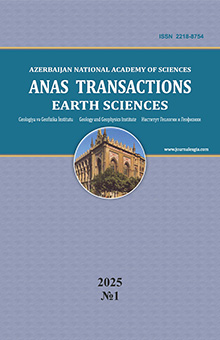№ 1,
2017
Download the article
The investigation of phase relationship of gas condensate systems at the pressures higher than retrograde condensation zone
Institute of Geology and Geophysics of Azerbaijan National Academy of Sciences, AZ1143, Baku, H.Javid av., 119
Summary
A-
A+
It became evident from the analysis of existing theoretical and experimental research results that the difficulty of the required experiments, the complexity and cost of necessary device to carry out these experiments reduce (restrict) the number of researches made in this field. On the other hand, the complexity of the composition of natural system and the weakness of theoretical scientific basis cause troubles in the formation of mathematical model characterizing the process. But the process occurring in the high pressure gas condensate fields discovered nowadays creates demand to research deeply the marked thermobaric interval.
Physical-thermodynamic research data carried out on the basis of ‘Bulla Deniz’ gas condensate field samples and physical thermodynamic processes occurred in the layer system at higher pressures than retrograde condensation pressure have been investigated on the basis of recombined gas condensate systems researches. It became evident that the liquid phase can exist at higher than retrograde pressure both in free and natural field condition. In this case, physical and thermodynamic properties of liquid and gas phases change during isothermal pressure reduction or increase, and the process is followed by intensive inter-phase mass transfer.
As a result of the obtained data, it was determined that at pressures above retrograde condensation compressibility factor decreases, which strongly impacts on the depletion process. It causes faster decline of layer pressure and energy and reduction of exploitation method efficiency during the exploitation in the depletion mode.
